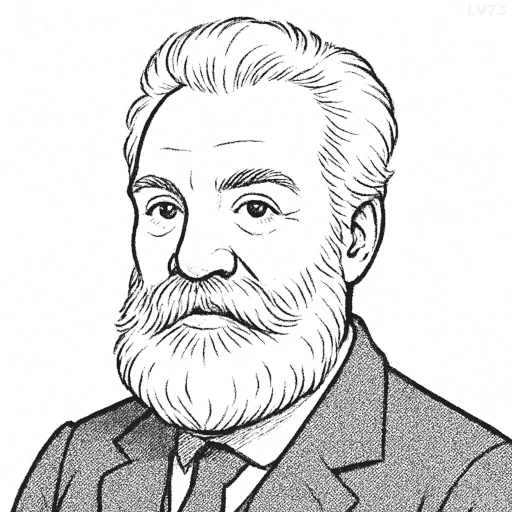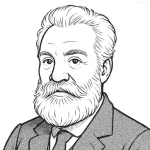“It is hardly an exaggeration to say that oral teachers and sign teachers found it difficult to sit down in the same room without quarreling, and there was intolerance upon both sides. To say ‘oral method’ to a sign teacher was like waving a red flag in the face of a bull, and to say ‘sign language’ to an oralist aroused the deepest resentment.”

- March 3, 1847 – August 2, 1922
- Born in Scotland
- Inventor, scientist, engineer, educator
table of contents
Quote
“It is hardly an exaggeration to say that oral teachers and sign teachers found it difficult to sit down in the same room without quarreling, and there was intolerance upon both sides. To say ‘oral method’ to a sign teacher was like waving a red flag in the face of a bull, and to say ‘sign language’ to an oralist aroused the deepest resentment.”
Explanation
In this quote, Alexander Graham Bell addresses the intense division and conflict between proponents of two methods of communication for the deaf: the oral method, which involves teaching speech and lip-reading, and sign language, which uses visual gestures and symbols to communicate. Bell describes how both sides were so entrenched in their beliefs about the “right” method of teaching that they could not even engage in discussions without significant resentment. The oralists believed that teaching the deaf to speak and read lips would lead to better integration into society, while sign language proponents argued that it was a more natural and accessible way for the deaf to communicate.
Historically, this conflict reflects the broader debate that has existed for over a century in the deaf education community. During Bell’s time, the oral method was often seen as a superior approach, and Bell himself was a strong advocate for it. The rise of oralism in the 19th and early 20th centuries led to the marginalization of sign language, with many schools for the deaf focusing exclusively on speech training. This rivalry even culminated in the 1880 Milan Conference, where the use of sign language was banned in many countries, deepening the divide.
In modern times, this tension between oral and sign-based communication continues to influence the deaf community. Today, many deaf individuals and educators advocate for a bilingual-bicultural approach, which recognizes both sign language and spoken language as equally valid and valuable. The ongoing conversation emphasizes inclusivity and individual choice, with some people preferring sign language for its cultural significance and ease of use, while others may rely on oral methods for integration into hearing society. Bell’s quote reminds us of the historical battles over communication methods and the importance of accepting diversity in how the deaf experience and express the world.
Would you like to share your impressions or related stories about this quote in the comments section?

